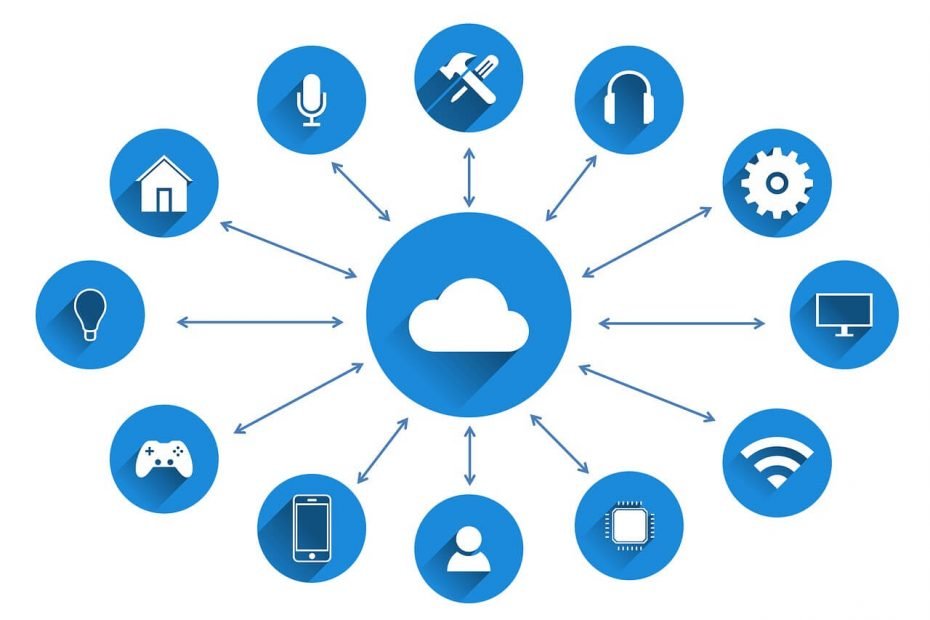Cloud computing has been gaining popularity for many years. This trend isn’t likely to slow down anytime soon due to the numerous benefits this technology offers to businesses.
You may have heard the term “cloud native” used in conjunction with cloud computing. This refers to applications that are deployed using open-source software stack. Each portion of these applications is delivered in its own container. This approach can be used to improve how computing resources are handled by applications.
What do cloud native apps consist of?
Cloud native apps rely on microservices for their architecture. These can be deployed or upgraded independently of other microservices.
They are centered around lightweight APIs that offer interactive and collaborative capabilities. Cloud native apps are not linked to any one particular operating system or piece of hardware.
Differences between cloud native and cloud migrant apps
To understand the benefits that cloud native apps offer, they need to be distinguished from cloud migrant apps. The main differences between the two technologies are shown below
1. Location
Cloud migrant apps are usually built on-premises and hosted on a cloud. Cloud native apps, on the other hand, are built inside the cloud and operate within it.
Unlock the future of intelligent applications with our cutting-edge Generative AI integration services!
2. Multi-tenant capabilities
Cloud native apps offer multi-tenant capabilities. This means their architecture allows users to share computing resources in the cloud. Cloud migrant apps on the other hand are usually single-tenant and serve a single user at any given time.
3. Scalability
Cloud migrant apps do not offer scalability. Any changes you wish to make to them will have to be performed manually. This can be difficult to carry out because it requires the application to be closed during upgrades.
Conversely, cloud native apps are scalable, and do not need to be shut down when they are being updated. These changes can also be made in real time.
4. Set up
Setting up cloud native apps is a fast process as it does not require special hardware or configuring.
Cloud migrant apps require more time and effort to set up because they often need additional hardware. They also require software to be configured before they are usable.
5. Affordability
Cloud migrant apps can be costly due to their ongoing monthly costs. Cloud native apps require less maintenance and are easier to make changes to, which makes them a more cost-effective solution.
The aforementioned benefits illustrate how a business that uses cloud native solutions can beat out competitors that rely on cloud migration apps.
How cloud native solutions can help your business
Cloud native solutions can help your business in many different ways. These include:
Lower costs
For many businesses, running and maintaining IT hardware takes up a large percentage of their operational costs. To make matters worse, these businesses have to foot the bill even when their data centers are not being used.
Cloud native solutions help reduce costs with their pay-per-use models and metered billing. This makes them a great option for any business that wishes to shift away from traditional infrastructures.
Your business can enjoy additional savings because of cloud native apps’ lower downtime and higher flexibility.
Better reliability
Businesses in the modern era are expected to change and upgrade their products and services regularly. However, to carry this out, they need cloud infrastructure that can facilitate these changes without risking the system failing or crashing.
Since cloud native apps rely on loosely connected microservices, the risk of the whole system creasing is reduced if any one of them fails. If you intend to change or add new components, you can do so without having to reconstruct the whole app.
Better customer experience
Another important reason why businesses are embracing cloud native solutions is because it can improve the customer experience. Listening to customer feedback is an important practice that helps organizations improve their services over time.
With cloud native apps, businesses can develop and deploy code more often and faster than ever before. This continual improvement process ensures that the customer experience they are delivering is always optimized.
More flexibility with vendors
Before the advent of cloud native apps, organisations were often locked into lengthy contracts with hardware vendors. Since cloud technologies eliminate the need for additional hardware, businesses no longer have to rely on any one vendor.
Automation capabilities
Cloud native solutions can also be automated as they work well with using infrastructure as code. This could be useful because some amount of automation is usually required when managing big applications.
Automation also helps free up staff, who can then focus on other non-automatable business functions.
Future importance of cloud native solutions
Cloud native solutions have already proven themselves to be popular with businesses for their superiority over cloud migrant apps. They allow organizations to adapt to changes more quickly in fast-paced environments. Their scalability also provides faster time to market, and by connection more business opportunities.
If you are interested in making the shift towards these technologies, you should get in touch with a trustworthy cloud service provider such as Cloud Computing Technologies.
Summary
Cloud technology is growing at a rapid pace in the modern era. Cloud Native Solutions offer many advantages over cloud migrant apps. They do not require additional hardware or software configuration, and can be scaled without taking down the app itself.
Cloud native apps offer multi-tenant capabilities which enables multiple users to use them at once. Embracing cloud native solutions can help your business reduce its costs and improve the customer experience. It’s automation capabilities can also help free up staff, who can then be allocated to other duties.
Further blogs within this advantages of cloud infrastructure as code category.




